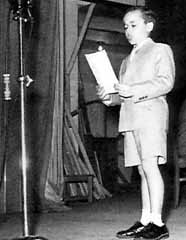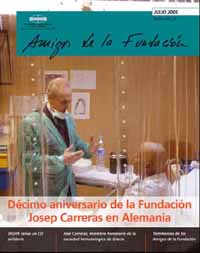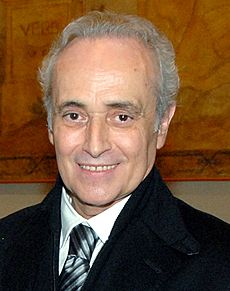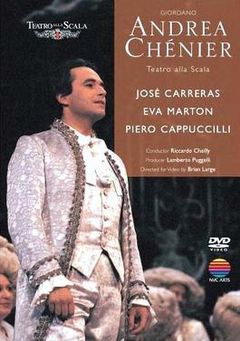José Carreras facts for kids
Quick facts for kids
José Carreras
|
|
|---|---|
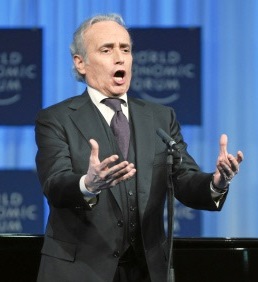
Carreras performing at the World Economic Forum in 2011
|
|
| Born |
Josep Maria Carreras Coll
5 December 1946 Barcelona, Spain
|
| Occupation | Opera singer (tenor) |
| Years active | 1954–present |
| Spouse(s) |
Mercedes Pérez
(m. 1971; div. 1992)Jutta Jäger
(m. 2006; separated 2011) |
| Children | 2 |
José Carreras (born 5 December 1946) is a famous Spanish opera singer. He is a tenor, which means he sings in a high male voice range. He is best known for his beautiful performances in operas by Italian composers like Verdi and Puccini.
Carreras was born in Barcelona, Spain. He started his opera career when he was only 11 years old. He went on to perform over 60 different roles in the most famous opera houses around the world.
Many people know him as one of The Three Tenors, along with Plácido Domingo and Luciano Pavarotti. They performed together in huge concerts from 1990 to 2003. Carreras is also known for his charity work. After surviving a serious illness called leukemia, he started the José Carreras International Leukaemia Foundation to help others fight the disease.
Contents
Life and Career
A Young Singer in Barcelona
Carreras was born in Sants, a neighborhood in Barcelona. When he was a young boy, his family moved to Argentina but returned to Spain a year later.
He discovered his love for music when he was six years old. He saw the movie The Great Caruso starring the singer Mario Lanza. Carreras was so inspired that he would sing opera songs, called arias, all the time. His family, encouraged by his grandfather who was an amateur singer, decided to get him music lessons.
At age eight, he performed on Spanish National Radio. A recording of him singing the famous aria "La donna è mobile" still exists. When he was 11, he made his debut at Barcelona's famous opera house, the Gran Teatre del Liceu. He sang the part of a young boy, which is a role for a boy soprano (a boy with a high, unchanged voice).
He continued to study music as a teenager. He also studied chemistry at the University of Barcelona for two years but left to focus completely on his singing career.
Becoming a Star in the 1970s and 1980s
In 1970, Carreras had a small part in the opera Norma. The star of the show, a famous soprano (a singer with the highest female voice) named Montserrat Caballé, noticed his talent. She asked him to sing a major role with her in the opera Lucrezia Borgia. This was his first lead role as an adult and the real start of his career as a tenor.
Caballé helped him for many years, and they performed in more than 15 operas together. Throughout the 1970s, Carreras became a huge star. He performed at the world's top opera houses:
- Teatro Regio di Parma in Italy (1972)
- New York City Opera in the United States (1972)
- Vienna State Opera in Austria (1974)
- Royal Opera House in London, UK (1974)
- Metropolitan Opera in New York (1974)
- La Scala in Milan, Italy (1975)
By the time he was 28, he had sung the lead tenor role in 24 different operas. He worked closely with the famous conductor Herbert von Karajan, who encouraged him to take on more powerful and dramatic roles in operas like Aida and Carmen.
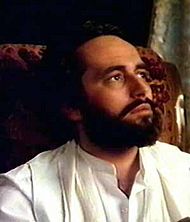
In the 1980s, Carreras also recorded music outside of opera, including songs from musicals like West Side Story.
A Difficult Challenge and a Comeback
In 1987, while filming the movie version of the opera La bohème, Carreras was diagnosed with acute lymphoblastic leukemia, a serious type of cancer. Doctors told him he had only a 1 in 10 chance of surviving.
He went through a difficult treatment that included chemotherapy, radiation, and a bone marrow transplant in Seattle, USA. Amazingly, he recovered. After his recovery, he slowly returned to singing. In 1988 and 1989, he went on a tour of comeback concerts.
The Three Tenors and Later Career
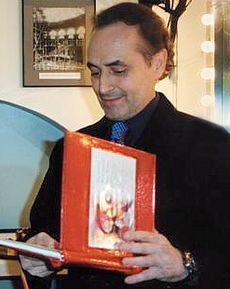
In 1990, Carreras, Plácido Domingo, and Luciano Pavarotti performed their first The Three Tenors concert in Rome. The concert was held to raise money for Carreras's leukemia foundation and to celebrate his return to music.
The concert was a massive success. It brought Carreras and opera music to a huge new audience. It's estimated that over a billion people watched their 1994 concert in Los Angeles on TV. The album from their first concert became the best-selling classical recording of all time.
Throughout the 1990s, Carreras continued to perform in operas, but he began to focus more on concerts and recitals. Since the 2000s, he has mostly performed lighter classical music, art songs, and has recorded with artists from outside the opera world, like Diana Ross and Sarah Brightman.
Humanitarian Work
After recovering from leukemia, Carreras wanted to help others facing the same disease. On July 14, 1988, he started the José Carreras International Leukaemia Foundation in Barcelona.
The foundation works to:
- Support research to find a cure for leukemia.
- Encourage people to donate bone marrow and cord blood for patients who need transplants.
- Improve hospitals and labs, especially in developing countries.
- Help patients and their families with services like free housing near hospitals.
The foundation has branches in the U.S., Switzerland, and Germany. Every year since 1995, Carreras has hosted a TV benefit show in Leipzig, Germany, which has raised over €71 million. He also performs in about 20 charity concerts each year for his foundation and is a Goodwill Ambassador for UNESCO.
Awards and Honors
José Carreras has received many awards for his music and his charity work. Some of his most important honors include:
- The Prince of Asturias Prize for Art (1991).
- Grand Cross of the Order of Merit of the Federal Republic of Germany.
- Chevalier of the Légion d'honneur in France.
- Grand Officer of the Order of Merit of the Italian Republic.
- The Brit Award for Outstanding Contribution to Music (2009).
He has also received honorary doctorates from many universities around the world. In Spain, a public square and two theaters are named after him.
Voice
In his best years, Carreras's voice was known for being one of the most beautiful tenor voices in the world. Critics described it as rich, colorful, and full of emotion. He was especially praised for his passionate singing and the expressive way he phrased his music.
Some critics believe that singing heavier, more dramatic opera roles put a strain on his voice. However, he gave some of his most memorable performances in those very roles. A review in the Daily Telegraph of his 1984 performance in Andrea Chénier said his "vocal artistry held us spellbound."
See also
 In Spanish: José Carreras para niños
In Spanish: José Carreras para niños


